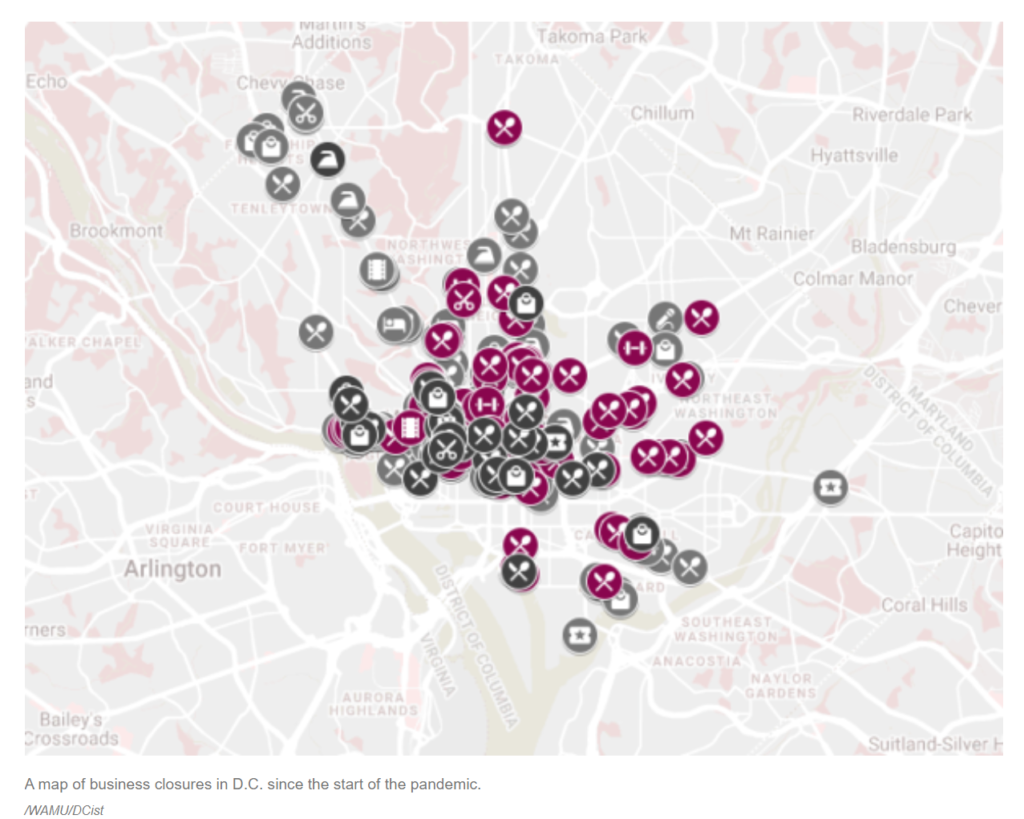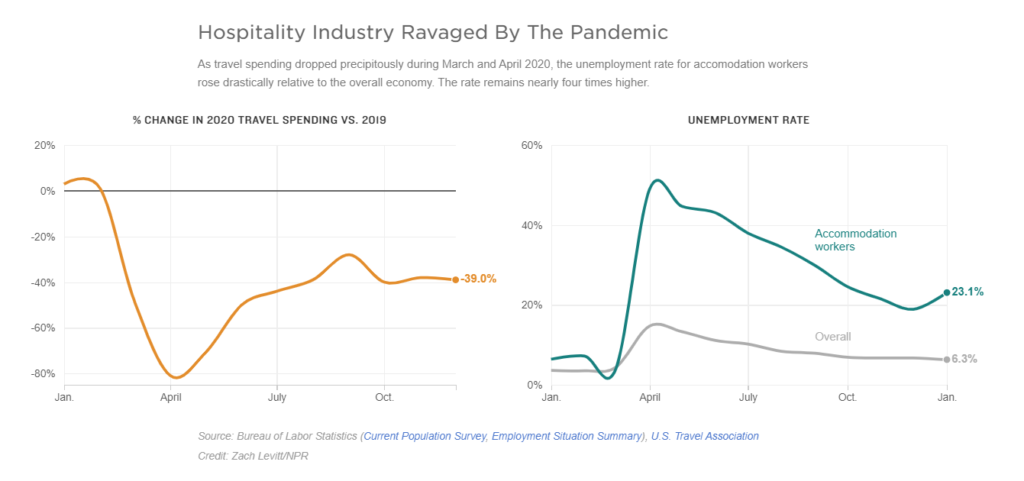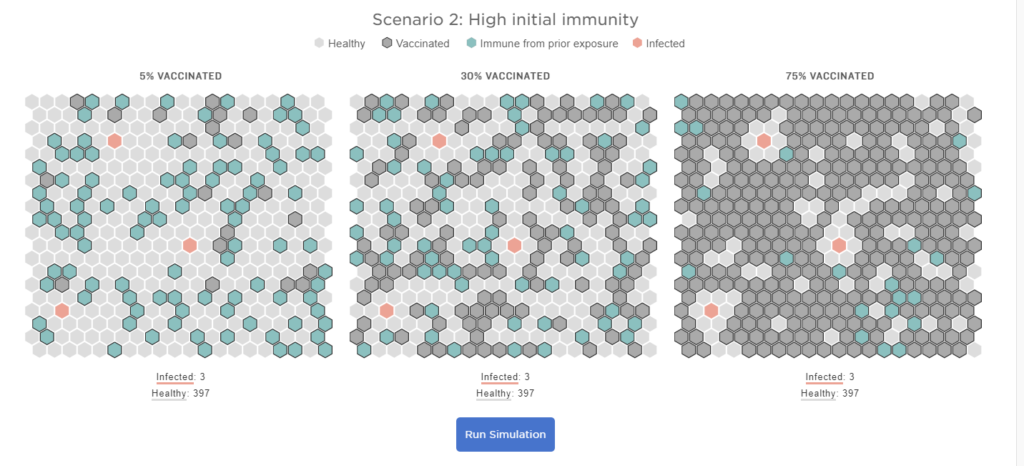Graphic:

Excerpt:
At least 235 brick-and-mortar businesses have closed permanently in D.C. since the first known coronavirus case was reported on March 7, 2020, with 100 more shuttered temporarily, a count by DCist/WAMU found. (The status of another 40 is unknown.)
As of December, more than 36,000 residents were unemployed — a 77% increase over the prior year. Downtown D.C., once an economic engine that contributed nearly 16% of the city’s tax revenue in 2019, is today an effigy of its former self. At night, the bars and restaurants that propelled so much of D.C.’s economic growth seem funereal without scores of intoxicated revelers streaming through the doors and swiping their credit cards.
Author(s): ALLY SCHWEITZER
Publication Date: 12 March 2021
Publication Site: NPR


